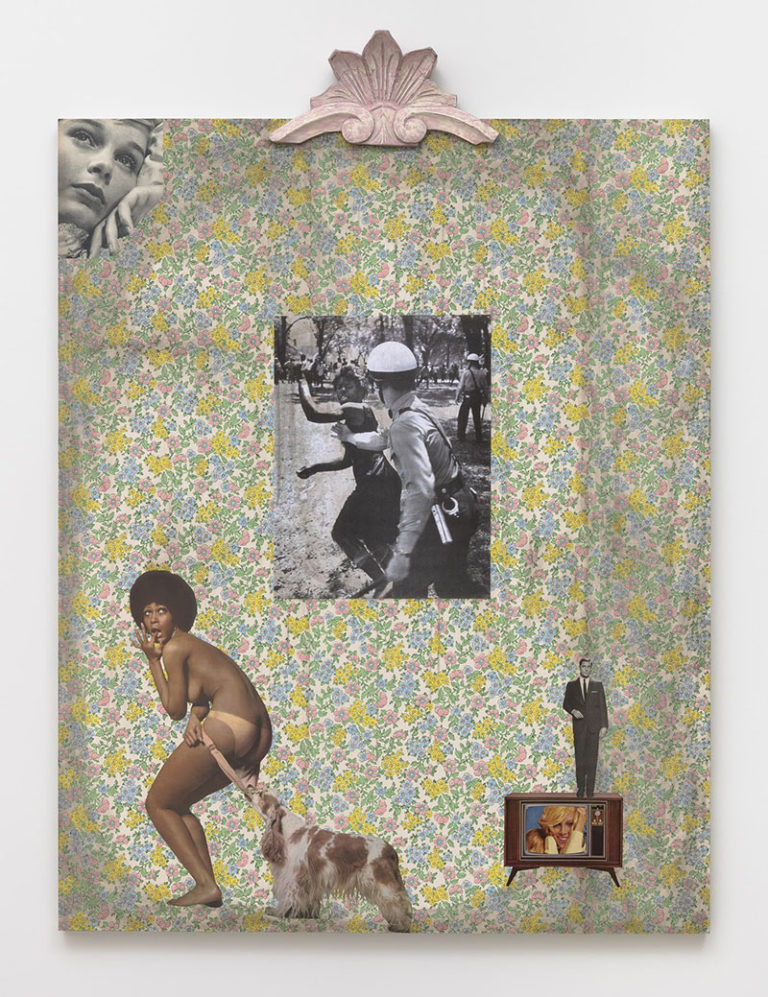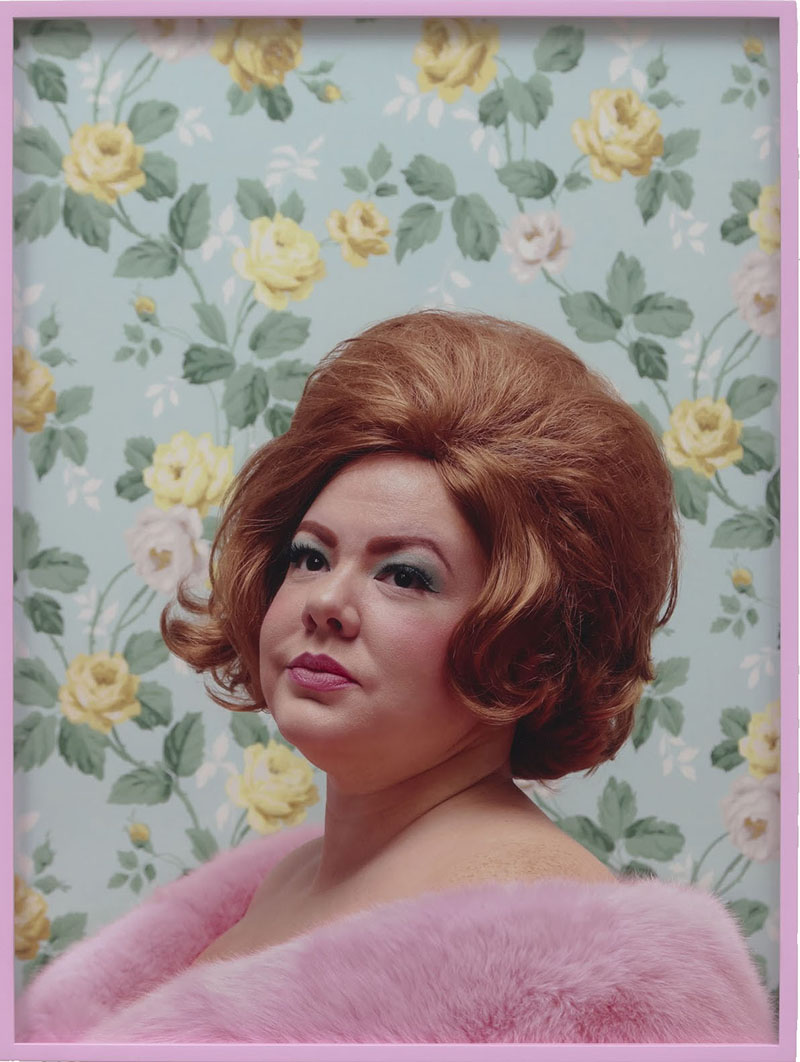It is not Genevieve Gaignard’s brazen truths, stinging though they are, but her subtle pricks that linger worryingly— Remember This House (2019) places a portrait of Ava Gardner (as well as other pale relations) on a family photo shelf, and a stuffed German Shepherd dutifully standing guard by the patriarch’s chair—contempt and violence neatly wrapped then delivered to your door. The latter reference may jog some memories of civil rights protesters assailed by Bull Connor’s attack dogs (elsewhere she employs one of the famous fire-hose photos), while the Gardner reference is strictly for cineastes of both Hollywood films and race pictures: Although Lena Horne had sung the role of Julie in As Clouds Roll By when it came to playing the “mulatto” role in the musical Showboat, she was considered too black. The role instead went to her friend Gardner who was too light for the role and had to be darkened down with the same studio concocted makeup—Light Egyptian—that had been used in earlier rehearsals to make Horne paler. So, it is Gardner on this shelf, lest anyone become suspicious of the family pedigree. This game show turntable mimicry has another side—”Do you want this prize or are you willing to gamble on the surprise gift on the other side?” The contestant, eager for better luck, gambles. Disappointment ensues. This side, the palpably black side of the family, has a demonstrably darker-hued living room. Below a black Jesus, faux African bas relief sculpture, and family portraits of people who never even considered passing is a bookcase peppered with the dogeared volumes from the college course “We’re Down with Negritude 101,” heavy with Baldwin, and on the mother’s chair a Mahalia Jackson church fan.
Her outrageously burdensome paleness—a paper bag has nothing on her—is shown in a pair of multipart self-portraits. One group shows variations of the artist in a series of six portrait headshots, Ladybirds (2019). Each is particularized with a subtitled species—Robin, Finch, Dove, Canary, Sparrow, Raven—and in each of these shape-shifting personae Gaignard is alternately pensive, scornful, unsurprised, wistful, stern and cheeky. One can deftly imagine these as youthful, and some not so youthful, postures that the artist has embodied over the years or considered then repudiated; all the hair-straightening, vocal evolutions and passionate but passing enthusiasms. Yet it is only when turning about that one appreciates this bit of trickster theater. Directly opposite, in People Make the World Go Around, 2019, a congregation of disparately styled and aged hand mirrors create an oval of mirrored selves. In these mirrors one can see oneself in the contorted personalities, from the point of view of the Ladybirds; if not the fairest of them all, then at least not as brutish and inchoate as one once was.

Genevieve Gaignard, Don’t Be A Paleface, 2019, courtesy of the artist and Vielmetter Los Angeles, photo by Robert Wedemeyer
The German Shepherds appear again in Beloved (2019). A little black boy demonstrates his humanity by appreciating the heady fragrance of a single perfect rose. While menaced by attack dogs.


